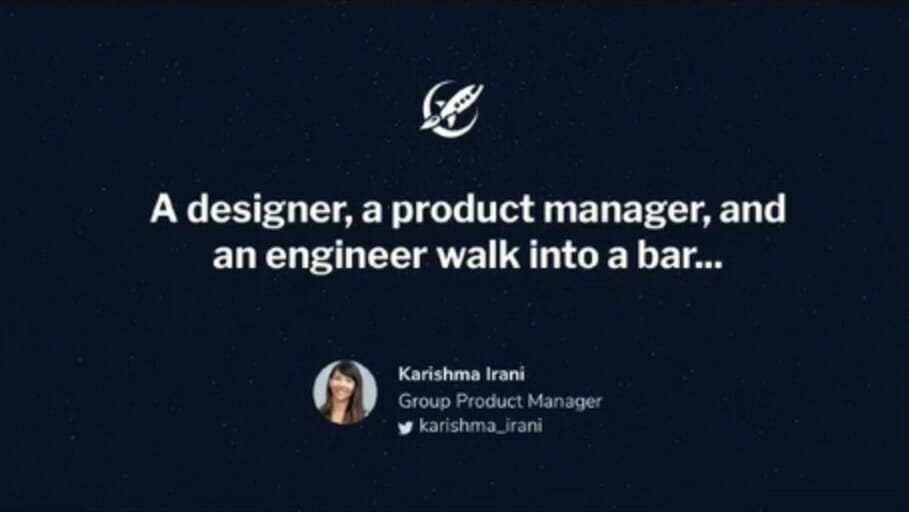They say the best teachers inspire and show you where to look. It’s this sentiment that led Matt Walton to forge a career as a product leader in edtech, first at digital education platform FutureLearn, and now at a new university in the UK that wants to equip its graduates with the interdisciplinary perspectives and skills needed to take on complex real-world problems.
Matt is an old friend of Mind the Product, he’s written some great blog posts for us in the past, he’s been a guest on our podcast and given ProductTank talks. He was part of the founding team at FutureLearn, and was instrumental in its growth from a team of five to over 200 people in the space of seven years. “It was a crazy startup journey,” he says.
Life after FutureLearn
Matt says FutureLearn was a huge learning experience. He learned about organising teams, setting strategy and how to step away from the day-to-day and empower product teams. But by the end of 2020, he knew the time was right for him to leave. By his own admission, he had burnt out and needed some time and space to reset. He explains: “FutureLearn was going into proper scale-up mode and I wasn’t sure I wanted to continue on that path. I’d had to rebuild the product leadership team after new investment, and it had been a really tough year. The pandemic had hit, which obviously had a big impact on distance learning, and we’d moved the whole company to remote working. So I deliberately decided to take a bit of time out to think about what I wanted to do next.”
Education is a unique and interesting product challenge, says Matt, and he quickly realised that as a product leader who knew about education, he had a lot to offer. So for the last couple of years or so he’s been advising and coaching edtech companies, both startups and scale-ups. He’s been working with businesses building new propositions, and building and scaling their product operations. “I particularly enjoy the early stages of working out the vision, then going into discovery and starting to build on that,” he says.
Product-market fit in edtech
Matt now spends one day a week on consulting, coaching, and getting his 6-week fellowship and study programme, Finding product-market fit in EdTech, off the ground. Product-market fit is the big problem for early-stage companies, Matt says, and he’s developed the fellowship after working closely with seed fund investor Emerge Education. The first cohort will start in January 2023.
You can find lots of advice on the internet about finding product-market fit and some of the common product techniques used to get you there, says Matt. His fellowship contextualises this advice for education – because education products often have different aims and parameters from other types of product.
What’s different about education products?
“Generally in education there are multiple users in the mix,” Matt says. “There’s not just the learner, you need to consider the educator, the parent, and there might be an employer if it’s education for your job. Understanding those different user needs and how they relate to each other is difficult. It’s like a very complicated marketplace business.” People usually turn to education at specific points of need, he explains, such as when they’re trying to get a job. Education is not something people take part in all the time, so all the classic product thinking about getting users hooked on your product and retaining them doesn’t necessarily apply.
“Another thing to remember about education is that it’s hard,” Matt adds. “You might go into learning a language, say, with a lot of enthusiasm – but you quickly realise that it’s very hard and it becomes difficult to keep up. This difficulty has a big impact on how you think about retention in education products.” Then there’s consumption: in classic product management you want users to keep coming back to use your product. In an education product, however, a lot of experiences outside of just consuming content are important. For example, is the user actually learning anything and are they getting the outcome from your product that they want?
Other complicating factors in edtech
Payment is another complicating factor for edtech products. Often it won’t be the student who pays, but rather a parent, an employer or a school. And then there’s timescale. Says Matt: “Often with products, you want a fast iteration cycle in order to test and learn. But with education, it can take weeks, months, or possibly years if you’re doing a degree.”
You can use the fast iterative agile techniques used to develop other products, says Matt, but you should use them with care in edtech. “I’m trying to offer something specific to education to help people think about these challenges. For example, how do you test and iterate quickly in a space where you’re offering a degree that’s three years long?.”
Notwithstanding their particular needs, a lot of classic product discipline still applies to edtech products. People still don’t talk to their customers enough, Matt says, and they still need to put their users at the heart of everything they do.
A new type of university
Matt recently joined The London Interdisciplinary School (LIS), as Chief Product Officer, he works there four days a week. LIS is a relatively new (founded in 2017) and very interesting business. It’s a higher education institution with a campus in Whitechapel, London. It has degree awarding powers, and challenges conventional approaches (its strapline is ‘shape the world, don’t fit in’). Whereas higher education is normally organised along subject disciplines – computer science, maths, economics and so on – the thinking at LIS is that students need to apply methods and perspectives from many different disciplines in order to be able to solve big and complex problems of today’s world.
As the LIS website blurb says, “is it possible to tackle a problem as complex as climate change without reference to (at least some of) ecology, economics, geography, and psychology? We don’t think so. What about the ethics of artificial intelligence? A challenge that draws on computer science, philosophy, design, and more disciplines besides”. LIS argues that students need to be more versatile, more entrepreneurial, and more resilient than current university subject teaching enables them to be.
An interdisciplinary degree
At the moment LIS offers a BASc, an interdisciplinary bachelor of arts and sciences degree, and has a total of 100 undergraduates, in first and second-year cohorts. Each term, the students have a thematic problem to solve, like sustainability, inequality or wellbeing, and they learn about a number of different disciplines as they work out how to solve the problem. If the LIS study programme sounds similar to the liberal arts degrees that are popular in US universities, then you’re probably not far off – but LIS says its focus is on how to combine different perspectives to solve complex problems.
Matt’s involvement with LIS started with an offer to its CEO Ed Fidoe to share some of his experiences and learnings from FutureLearn. This progressed to consulting work and a conversation about how to shape the LIS leadership team for the next phase in its development. Eventually he joined LIS as Chief Product Officer in autumn 2022.
Currently Matt is looking at how LIS can develop learning experiences, beyond its core undergraduate degree. This isn’t building technology. “People generally think of product as an approach for software businesses, but I think all the principles of the product mindset actually apply much more broadly. It’s bringing that product mindset and product methodology to something that’s bigger than software,” he says.
At the moment he’s looking at the university’s professional and postgraduate portfolio and doing minimum viable testing on a range of new programs. For example, he’s investigating master’s level certificates that people can achieve in a shorter timescale than a master’s degree. LIS believes they might meet a market need because prospective students are looking for something different from what is currently available to them.
It may be early days for LIS but Matt is already thinking about how the institution can scale. He’s looking at how it might deliver more remote-first learning experiences for students who are learning alongside a job, and need their learning to be remote-first, self-paced and synchronous. And finally, if this idea of a new type of interdisciplinary qualification has piqued anyone’s curiosity, LIS is currently recruiting for a product manager to join Matt’s team.







Comments
Join the community
Sign up for free to share your thoughts